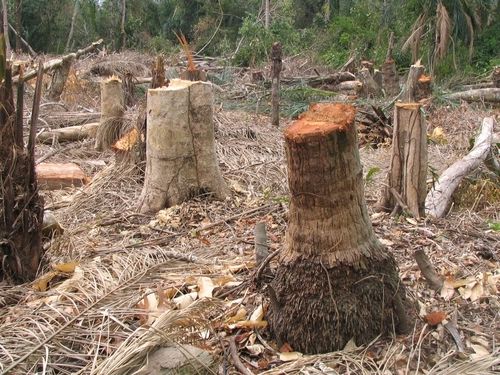Humanity's impact on the Critical Zone is immense and often mostly negative, in the sense that the characteristics of and processes in the zone are diminished by our actions. By now you should have a sense that there are consequences to these actions and that the current status of humanity's relationship to the Critical Zone is not sustainable.

Reading assignment
To learn more about human interactions with the various components ("spheres") of the Critical Zone system, complete the following reading assignment. As you do so, be sure to search for information regarding the characteristics, processes, and couplings of each component that may help you build your qualitative Critical Zone system model.
Articles not directly linked are located in Library Reserves.
- Atmosphere and hydrosphere (climate and hydrology):
- Read the executive summary and browse the rest of this important report from the Intergovernmental Panel on Climate Change.
- Lithosphere and erosion:
- Wilkinson, B. H. (2005). Humans as geologic agents; a deep-time perspective. Geology (Boulder) em, 33(3), 161–4.
- Biosphere:
- Vitousek, P. M., Mooney, H. A., Lubchenco, J., & Melillo, J. M. (1997). Human domination of Earth's ecosystems. Science, 277(5325), 494–9.
Check this out . . .
To learn more about the basics of human population growth and effects on natural resources visit Population Education. Pay particular attention to the "Environmental Connections" link and notice the teaching materials and tools, teacher services and workshops, and the free newsletter for teachers".
To consider an important view of tropical deforestation links to agriculture, food security and sustainability, see Iowa in the Amazon.